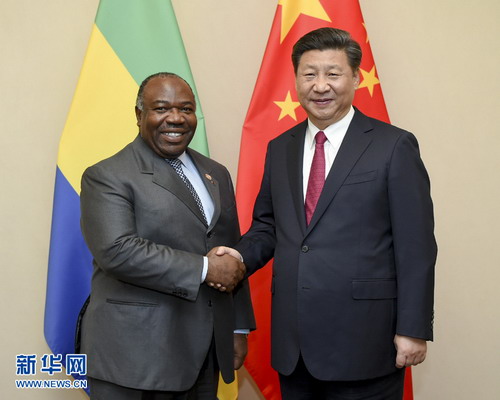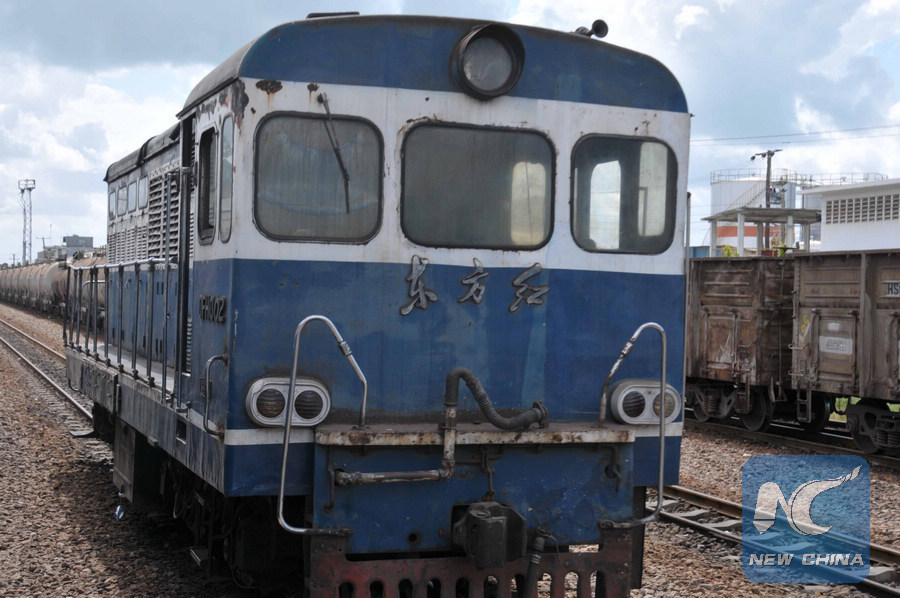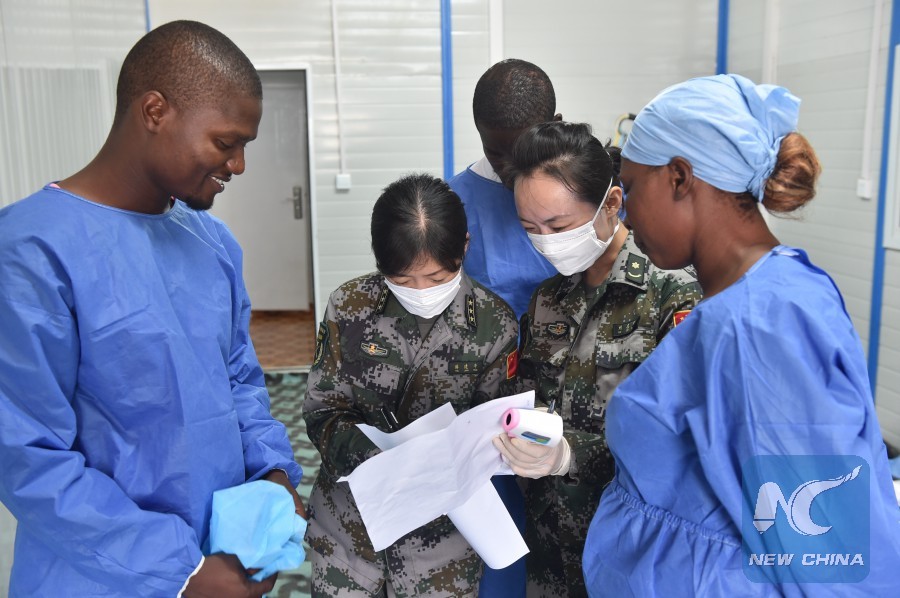By Miroslav Atanasov, Ph.D., Renmin University of China
Last week President Xi Jinping received President Ali Bongo Ondimba of Gabon at the Great Hall of the People in Beijing. The meeting, in which the two leaders reaffirmed the importance of bi-lateral cooperation, reflected the profound friendship between China and Africa.

Recent History
In December 1963 the then Premier Zhou Enlai and Vice-Premier Chen Yi went on a historic tour of ten African nations. They exchanged views with African leaders and agreed to oppose racism and colonialism, preserve world peace, and strengthen ties. Zhou emphasized that global affairs should not be decided just by a few world powers, but newly emerging nations also deserved a voice. The Premier committed that China would assist Africa’s development by providing low-interest loans, financial aid, quality equipment, and expert assistance.
In October 1971, the United Nations General Assembly passed resolution 2758, which recognized the People’s Republic of China as the only legal permanent representative of the Chinese people in the organization. The favorable votes of 26 African countries made the passing of the resolution possible.

Photo taken on July 6, 2010 in a train leaving from Dar es Salaam, capital of Tanzania, shows a carriage of a train. In 1970s, tens of thousands of Chinese railway workers came here to build the 1,860-kilometer Tanzania-Zambia Railway, better known in East Africa as the TAZARA. (Xinhua/Guo Chunju)
The TAZARA Railway, connecting Tanzania’s Port of Dar es Salaam with the town of Kapiri Mposhi, Zambia was the largest single foreign-aid project constructed by China. Built between 1970 and 1975, it was 1,860 km long, cost 500 million USD, and provided land-locked Zambia with a much needed alternative route for its exports. 25,000 Chinese and 50,000 locals labored on the grand project – a gesture of socialist solidarity. When Beijing hosted the 2008 Olympics the torch relay in Africa was launched at the railway’s grand terminal in Tanzania.
After the Cold War, Western countries changed their policies toward Africa. This gave China an opportunity to use its large foreign currency reserve and industrialcapacity to increase its involvement. In 1999 the Chinese government launched the “Go Out Policy” encouraging its enterprises to begin major investments overseas.
In 2000 the Forum on China-Africa Cooperation (FOCAC), a triennial platform for Chinese and African leaders, was established in Beijing. At the last FOCAC’s summit in Johannesburg in 2015, President Xi pledged US 60 billion for three years in various forms of assistance, such as development aid, direct investment, preferential loans, and debt relief.
Present Cooperation
China is one of Africa’s main commercial partners. South Africa, Angola, Sudan and Nigeria are the biggest African trade partners to China. China respects the sovereignty of African nations and does not interfere with internal politics. That stance receives criticism, but the western pro-democracy push is often hypocritical and inconsistent. The western countries who had an atrocious colonial legacy in Africa are really not the ones to be pointing fingers.
Major points of China-Africa cooperation are:
1.Economic. Over 800 large Chinese companies work currently in Africa, building infrastructure at competitive costs. These projects are visible and please African locals. Other big projects like stadiums and university campuses are also constructed by the Chinese. The African continent, especially the eastern and southern coastal nations, has also been included into China’s Belt and Road Initiative.
In exchange African countries provide China access to their natural resources. One third of China’s oil imports come from Africa. The Chinese have reopened and managed most mines in Zambia’s Copperbelt. This gives China immense benefits, but it also provides thousands of jobs for locals.

Local medical staff receive training from Chinese doctors on Ebola treatment in Monrovia, Liberia, Dec. 3, 2014. (Xinhua/Yang Guoyu)
2.Health Care. Health diplomacy with Africa started in the 1960s. Thousands of Chinese doctors have provided treatment to millions of Africans in many countries. China has given billions of aid for HIV/AIDS, malaria, and TB treatment, and has built many hospitals and health clinics. In 2014 Beijing reacted quickly to the Ebola crisis in West Africa, sending Chinese personnel and installing temporary treatment centers.
3.Agriculture. By operating local farms, providing hybrid rice for higher yields, and training local agricultural workers, the Chinese are a major contributor to solving the hunger problem on the continent. China, the best example of poverty reduction in recent decades, is helping Africa achieve that objective.
4.Education and Culture. For a period of 3 years, Beijing funds 18,000 scholarships for African students who come to China. As many of them learn Chinese and return home to work in various spheres of the public and private sector, they help their countries and are instrumental in strengthening the cooperation.
5.Soft Power. CCTV’s studios in Nairobi help inform the world about African affairs and educate the Chinese public about Africa. The supply of Chinese literature helps local African readers learn more about China, which can dispel misconceptions.
Some other important areas of cooperation are green energy, wildlife preservation, scholarly research, tourism, and water purification.
According to a recent Afrobarometer report, 63% of Africans have a favorable opinion of China’s influence. Locals love the cheaper cost of Chinese-imported products, including automobiles and electronics.
This exchange has created competition with other world powers who also want to do business in Africa. Africa has the leverage and if African leaders play their cards right, it will benefit their people.
Nshuti
In 1983 a baby girl was born at Rwanda’s Kibungo District Hospital, which the Chinese had recently built. Nshuti was the fourth child in a family of seven. Her elder sisters had all died at birth, because without enough hospitals in the area, her mother had attempted to deliver them at home. “Thanks to the Chinese, I’m now a mother,” used to say Nshuti’s mom. The story inspired the girl’s interest in the Chinese language. Little Nshuti would spend hours at the hospital talking to the Chinese staff. A tragedy struck as both Nshuti’s mother and stepfather were killed in the 1994 civil war. An orphan at 11, Nshuti managed to help her two little brothers survive. All three were fortunate to pursue education. Nshuti became fluent in Chinese and won a scholarship to study electrical engineering at a university in China. She defines “friendship” as “a form of interpersonal relationship closer than association.” Nshuti’s life story, told by Paterne Mizero, is just one example of the unique friendship between China and the African people.
( The opinions expressed here do not necessarily reflect the opinions of Panview or CCTV.com. )

Panview offers a new window of understanding the world as well as China through the views, opinions, and analysis of experts. We also welcome outside submissions, so feel free to send in your own editorials to "globalopinion@vip.cntv.cn" for consideration.















